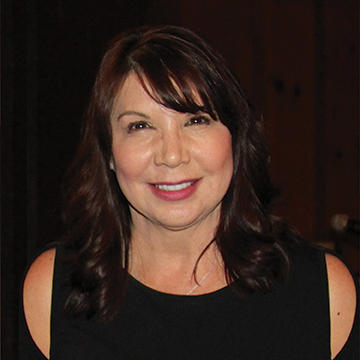Imperial County Clinical Research Network for Health Equity
Building the infrastructure for clinical research within Imperial County
About Us
The Imperial County Clinical Research Network (ICCRN) for Health Equity was established to build the infrastructure for clinical research within the rural, border community of Imperial County, CA. In a collaborative partnership with the National Institute on Minority Health and Health Disparities (NIMHD), ICCRN aims to:
- Take a “bottom-up” approach to support local clinical research across different diseases and health conditions to address health disparities
- Foster a joint approach to community, clinical, and scientific communication and dissemination of data and research findings at local, regional, state, and national levels
- Bring together three advisory committees (patient, clinician, community stakeholder) to identify research priorities and infrastructure needs, relevant to the health and well-being of Imperial County residents
- Award and support Pilot Projects that align with ICCRN and Advisory Committee Priorities
- Collaborate with three other Clinical Research Network sites and a coordinating center across the country to identify relevant, feasible, sustainable, and potentially translatable approaches for promoting health and well-being in rural, border communities in the U.S.
Mission
Leverage community-academic collaborations through a bottom-up approach to develop a regional clinical practice research network for health equity in the rural border region of Imperial County
Vision
Foster relevant, feasible, sustainable, and potentially translatable approaches for promoting health and well-being within the rural border region of Imperial County and beyond
Values
Trust, Loyalty, Empathy, Equity, Collaboration, and Innovation
Newsletter
Meet Our Principal Investigators
Community

Born and raised in Imperial County, Dr. Hoyt represents the community component of ICCRN. As Assistant Professor and Associate Director in the School of Nursing within the SDSU Imperial Valley Campus and Co-Director of the SDSU IV RISE Center, Dr. Hoyt brings her leadership in research administration, as well as scientific expertise in the development and evaluation of evidence-based interventions spanning both the acute and community-based settings. She has served on various Imperial County research initiatives related to asthma, cancer, childhood obesity, diabetes, congestive heart failure, and health literacy. She helped build multidisciplinary research councils at both Imperial County hospitals while founding and co-directing a community-academic research hub fostering research, innovation, and student engagement that was made possible after leading a successful RCMI-funded SDSU HealthLINK Center-affiliated Administrative Supplement titled “Our Health”. The focus of her research is related to rural, border health disparities within Imperial County. Dr. Hoyt’s love for her community will shine as she brings the community voice to ICCRN.
Clinical

As Chief Executive Officer/President of Innercare, Inc., Ms. Bell brings her extensive administrative background, knowledge of the community, and leadership to the team. For decades, she has served the needs of populations experiencing health disparities, most notably those living on the California-Baja California, MX border, those living in rural communities, and those identified as Latino/Hispanic. Her leadership has extended from clinical to research partnerships with SDSU, SDSU IV, UCSD, UC Riverside, among others. Ms. Bell is excited to use her expertise to represent the clinical component of ICCRN.
Science

As Professor of Public Health within the College of Health and Human Services, Director of IBACH, Director of the SDSU HealthLINK Endowment, and Co-Director of the SDSU HealthLINK Center, Dr. Ayala brings her leadership in research administration, as well as scientific expertise in the development and evaluation of evidence-based interventions to prevent and control obesity, diabetes, and asthma. Most of her work has involved Latinos (mostly of Mexican origin) and rural populations. Her research involves the use of rigorous study designs, including randomized controlled trials (RCTs) and cluster RCTs, to improve health outcomes by promoting individual, social, organizational, and/or environmental changes. In addition, she has led numerous formative research studies to inform the design of these interventions including with children, adolescents, and adult men and women as individuals and as members of various organizations. She has also led the development of several validated self-report scales, including a parenting strategies scale identified as a mediator of improvements in obesogenic behaviors and health indicators in children. The scale is now translated into four languages. She has collaborated with numerous organizations including Federally Qualified Health Centers, early care and education centers, schools, grocery stores, restaurants, and community recreation facilities to promote health behavior change and improved health outcomes. Finally, she has led several multi-site observational and intervention studies that involved the identification of common data elements, data sharing protocols and processes, and data harmonization yielding numerous cross-site papers, including the NIH-funded Hispanic Community Health Study/Study of Latino Youth, the CDC-funded Childhood Obesity Research Demonstration study, and the American Academy of Family Physicians-funded Peers for Progress intervention studies, a global effort involving investigators in countries as diverse as Uganda, India, US, China, UK, and Thailand. Growing up in Imperial Valley, Dr. Ayala knows firsthand the challenges faced by residents and is passionate about leveraging community-academic research partnerships to overcome these challenges.
ICCRN Partners
Funder
National Institute on Minority Health and Health Disparities (UG3MD018353)
"Research reported in this publication was supported by the National Institute On Minority Health And Health Disparities of the National Institutes of Health under Award Number UG3MD018353. The content is solely the responsibility of the authors and does not necessarily represent the official views of the National Institutes of Health."





